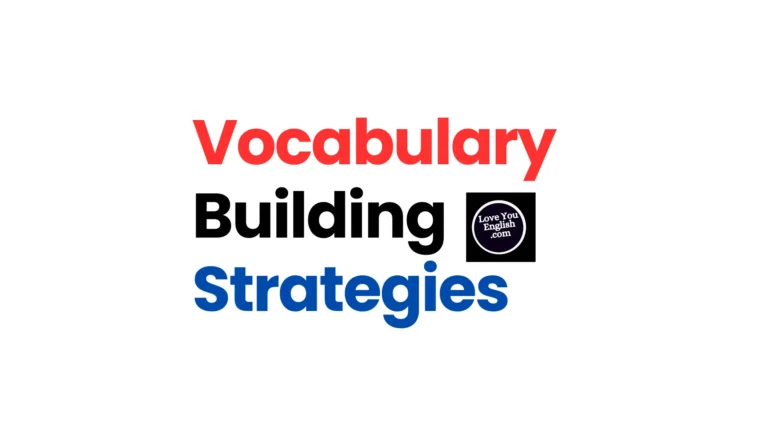The Importance of English language in Business
Hello everyone,
Nowadays, it’s super important for businesses to be able to talk in English really well.
English is the main language for business all over the world, so it helps companies to talk and do business with people from other countries.
If you’re a small business owner or work for a big company, being good at English can help you find new chances and make it easier to talk to customers, partners, and coworkers from all over the world.
English as the Global Business Language
English is the most commonly spoken language in the world, with over 1.5 billion speakers.
This makes it the best choice for international communication, as it increases the chances of understanding each other with business partners, clients, and stakeholders from different cultures and languages.
Also, many of the world’s top economies and financial centers, like the United States, United Kingdom, Canada, Australia, and Singapore, use English as their main language.
This has helped English become the dominant language in areas like finance, technology, and global trade.
Enhancing Communication and Collaboration
Good communication is key to making a business successful.
When companies are good at English, they can talk easily with everyone they work with, both inside and outside the company.
Speaking English well helps businesses share their thoughts, make deals, and create good connections with customers, suppliers, and partners all over the world.
In big companies that work in many countries, English is used as a way for everyone to understand each other.
This makes it easier for people from different places to work together.
This makes it simple to share ideas, learn from each other, and come up with new plans that help the business grow and come up with new ideas.
Accessing Global Markets and Opportunities
In the world today, businesses that are able to speak English well have a big advantage in reaching global markets and taking advantage of international opportunities.
The biggest companies in the world usually use English for their operations, so being good at English is really important if you want to work with them.
If a company can speak English fluently, they can grow their business and enter new markets more easily.
Knowing English helps companies deal with the challenges of international business, like changing their marketing plans, following local laws, and making products that different customers will like.
Attracting Top Talent and Improving Workplace Dynamics
Besides helping with communication, being good at English can also make the workplace better and help the company find the best people to work there.
When companies focus on English, they can get the best workers from all over the world.
When everyone at work speaks the same language, like English, it can make the workplace more friendly and everyone can work together better.
It can also help people from different backgrounds feel like they are part of the same team.
And if everyone is good at English, it can make training and learning new things at work easier for everyone, so the company can do better.
Navigating Legal and Regulatory Landscapes
In the global business arena, understanding legal rules and regulations can be tricky. Some nations prefer using English for important paperwork, agreements, and legal matters.
Knowing English well helps companies follow local laws, reduce risks, and run smoothly across different countries.
Also, being fluent in English allows businesses to get advice from legal experts on international deals, patents, and other key parts of global commerce.
Enhancing Brand Presence and Marketing Efforts
In today’s digital age, having a strong online presence and effective marketing strategies are essential for businesses to succeed.
English has become the dominant language of the internet and digital media, making it crucial for companies to leverage English in their branding and marketing efforts.
By creating high-quality, engaging content in English, businesses can reach a vast global audience and effectively communicate their brand message, values, and unique selling propositions.
This can help them build brand awareness, establish credibility, and forge meaningful connections with potential customers worldwide.
Moreover, proficiency in English enables businesses to navigate the complex world of digital marketing, including search engine optimization (SEO), social media marketing, and content creation, ensuring that their message resonates with the widest possible audience.
Unlocking Educational and Professional Development Opportunities
Beyond its direct applications in business, English proficiency also unlocks a wealth of educational and professional development opportunities.
Many of the world’s leading universities, academic institutions, and professional training programs offer coursework and resources primarily in English.
By mastering the language, individuals and businesses can access a vast repository of knowledge, stay up to date with the latest industry trends and best practices, and continuously enhance their skills and expertise.
This not only fosters personal growth but also contributes to the overall competitiveness and success of the organization.
Overcoming Language Barriers and Fostering Inclusive Work Environments
In today’s diverse and multicultural workplaces, language barriers can pose significant challenges to effective communication, collaboration, and inclusivity.
By promoting English proficiency, businesses can create an environment where individuals from different linguistic backgrounds can communicate freely, share their perspectives, and contribute to the company’s success.
Additionally, by investing in English language training and resources for their employees, businesses can demonstrate their commitment to diversity, equity, and inclusion, fostering a sense of belonging and creating an environment where everyone feels valued and empowered to succeed.
Final thoughts
In the constantly changing world of business, being good at English is really important.
If businesses learn this language, they can open up lots of new chances, make it easier to talk to people, reach new customers, get the best workers, understand the rules and laws, make their brand more well-known, and make a work environment where everyone feels included and works together.
No matter if you’re a small new company or a big one that works in lots of countries, it’s really smart to focus on getting better at English.
When companies use the language that everyone in business uses, they can set themselves up to do well for a long time, make strong connections with people all over the world, and help the global economy grow and do better.
_______________________
Check out these awesome English learning books I recommend:
Oxford Practical English Usage
Conversation Skills for All Occasions





